Without leads, your business will most assuredly fail.
Leads are the qualified prospects who can become customers and ambassadors of your brand if you play your cards right. Sure, a firm may have several important goals, but a large percentage of organizational goals focus on lead generation.
Marketers, particularly B2C marketers, rely on several channels to drive leads to their businesses and boost their conversion rate.
But often, these channels don’t yield results that they can bank on. If you’ve spent a lot of time creating content, hoping to attract the right leads, but you still aren’t getting results, it can be discouraging. But hear this: you’re not alone.
At one time in my content marketing career, I struggled to acquire leads.
Today, I want to show you proven hacks that will grow your leads by 113%.
What does your potential customer want? Once you’re able to answer that question and tie it to a high-converting landing page, you’ll consistently generate leads. Growing your leads will always be easier if most of your attention is focused on syncing your landing page with your other marketing channels.
No matter what channel you’re using, HubSpot’s statistics found that 54% more leads are generated by inbound tactics than by traditional paid marketing. This also means that you have to give top priority to creating the right content.
Once you’ve committed to that mindset and approach, implement these six lead generation hacks to grow your leads faster.
Ready? Here’s my top lead generation tips.
Hack #1: Lead generation starts at home—review your homepage messaging
For most marketers, their homepage receives the most visits. Tandberg (since acquired by Cisco), a leader in the field of teleconferencing, increased its lead generation by 50% from a simple homepage CTA that blended with other elements such as the headline, subtitle, and images.
If you’ve been actively promoting your site, your homepage will be getting visitors from referring sites, social media sites, search engines and other sources.
Stuart J. Davidson shared how he reached 140,753 page views within twelve months, since re-launching his blog. Since the homepage receives a tremendous amount of traffic, don’t you think that reviewing and adjusting your homepage messaging might help you generate more leads?
I’m confident that it works; that it is, in fact, one of the best lead generation tips for you to absorb. For example, Alex Chris, founder of Digital Marketing Pro, said that one of the areas he tweaked, which led to over 400,000 visitors per month to his site, was the homepage. This also led to several thousand leads!
He showcased five sticky posts, together with a list of the latest posts. He also added a must-read section on his sidebar, which is important if you want people to find your best content the moment that they arrive at your blog homepage. This is how Chris’ homepage looks as I write this article:
Although the sidebar usually shows up on every page on most WordPress themes by default, you can permanently set it for your homepage only.
On the flip side, if you have an offer (e.g. an e-book, a report, software) on your landing page, you’ve got to ensure that your messaging (copy) and offer are in sync.
The two should synch, so that visitors will not be confused when they get to your homepage.
Hack #2: Link to your webinars directly in your content
One of the best lead generation tips you should take away from this post is how a webinar can work brilliantly in your favor.
A webinar is a relatively low-cost way to get your useful message in front of a targeted audience who actually asked for it when they registered.
A small consulting firm used webinars to generate over 100 new, qualified leads and resulted in six opportunity-based meetings. This, in turn, led to $50,000 in services being discussed.
And, 52% of marketers believe that webinars and seminars are the most effective methods for generating targeted leads.
If you can host a webinar and link to it directly in your content, your leads will take you more seriously, because you’ve provided value before asking them to register.
This is quite different from a webinar landing page that doesn’t offer much value to the user.
For example, the screenshot below shows how Quality Matters links to its webinar registration page from within its success stories (a blog post).
The challenge that most people face, when they host webinars, is getting enough people to register. But, you can drive webinar registration by linking directly to it. Uberflip knows how to invite blog readers to register for upcoming webinars right from a post. Here’s an example:
If you’re not using webinars to drive leads to your business, you have to start today. – Lewis Howes
When people are engaged, magical things can happen, right on the spot.
Engagement is the sole purpose of hosting a webinar. Stay time (duration) is influenced by the ease of entering into the webinar, the topic and whether or not attendees stick around during the Q&A.
If you want to take your lead generation to the next level, you should consider hosting a webinar. Successful internet marketers know the power behind a well-planned webinar.
You can generate leads, nurture them and build a thriving business, solely with webinars. According to a survey conducted by ReadyTalk, 30%–40% of webinar attendees are turned into leads.
There’s no doubt that bringing the right people together in a virtual platform increases trust, leads, and sales. No matter what your industry may be, you have to recognize that people want to belong.
People want to learn from the experts.
And, you don’t have to be an influencer to successfully host a webinar.
The most important factor in increasing user engagement is how useful your webinar is.
In fact, 38% of attendees will stick around if your topic is hot and what you’re sharing with them will yield significant results in their business and life.
If you’re a B2B marketer, one of the most effective ways to generate qualified leads, apart from word of mouth referrals, is webinars. When you bring people together for the sole purpose of educating them, you’ll generate hot leads.
However, you need to make your webinar a part of your content. Naturally, your blog readers, email subscribers and customers might have developed an emotional connection with your content. When they’re reading your post, they have a mindset that you’re only interested in solving their problems.
Blogging is a great way to build trust. If you want more people to register, reserve their slot and attend your webinar, then you have to establish a level of trust with them. That’s when blogging comes into play.
The role of webinars in the sales process can’t be ignored, because most companies have experienced higher sales when they hosted a webinar.
The more useful and interesting your blog posts are, the better. Consequently, when you link to your webinar from within your content, it’s a sign that you want to offer more value to your readers without giving them the idea that you’re out to make some quick bucks.
When you have the attention and trust of your attendees, you can recommend a product or service that’ll help them. You have a responsibility to qualify your leads and map your leads’ buying journey. Every stage of the customer buying process is important during the webinar.
Yes, you can sell, but there is a smart way to do it, especially when you’re mindful of your brand and reputation. You don’t want anything that will hurt it or separate you and your audience.
Here’s exactly how to sell during the webinar:
Welcome questions: For each webinar that we host, both at KISSmetrics and at QuickSprout, we usually leave up to 30 minutes for questions.
Without a doubt, this is a sure way to tell attendees that we care about them and not their money. It created a stronger bond that led to more qualified sales and customers in the long run.
Give value before asking for anything: Whether you’re hosting a webinar, writing a blog post or speaking at an event, you have to offer tangible help before asking for the sale or any other thing that would require the attendee to move out of their comfort zone (e.g., purchase your product). This how to draw in your potential customer – and, hopefully, keep them.
Educate them. Use interesting storytelling methodology to engage them. Address the questions that are occupying their minds. You can then pitch your offer, because you truly believe that it can help them move forward.
Launch a poll: Polls can foster engagement and improve customer satisfaction. Polls are simple survey questionnaires that look like this:
For example, through a poll, Tomoson found that nearly 60% of marketers plan to boost influencer marketing budgets.
Similarly, you can use polls during your webinar. Over the course of the webinar, we usually ask attendees to respond to a poll. Our most common question in the poll is
- Are you interested in our product demo?
Because we use GoToWebinar, it’s easy for us to see the attendee report that indicates their core interest. You can then forward the report to your sales page and tweak the offer, copy and call-to-action to maximize sales.
Ask people if they’d like to try your product during registration: At KISSmetrics, we found that our biggest sales come when people are registering for our webinars. Before their registration is completed, we usually ask
- Do you want a demo of our product?
Offering a demo led to 10% more conversions than the free trial.
Make them an irresistible offer: If you want to make more sales or acquire better leads, you have to offer your attendees what they can’t resist. If your offer is great and timely you’ll see an increased sales conversion that ranges from 5%–60%. Remember that when you sell or recommend an offer during the webinar, you need to brand your slides. In other words, your company logo, colors and icons should be used prominently in the presentation design.
When you do that, your brand will always stay fresh in attendees’ minds. This is a priceless and efficient way to get the sale the moment that you ask for it.
Premium content: Another proven way to sell during the webinar is to offer premium content. It could be your new training videos that you haven’t released on YouTube or a few chapters of your upcoming book.
To grow your business and nurture a passionate audience and customers that will stand the test of time, you’ve got to feed them with premium content.
This is the type of content that offers tremendous value and scarcity.
This means that users can’t find it elsewhere, not even in a Google search. Hosting a webinar and linking to it from within your post is one of the ten most effective ways to promote your premium content.
A webinar is quite different from a blog post, video or podcast. According to Ascend 2,
When you compare all of the lead generation tactics, webinars are the second most effective delivery mechanism of premium content for digital marketers.
Yes, you have to have a dedicated webinar page on your site, but always link to both your old and your new webinars within your content. Our dedicated page now accounts for over 20% of our webinar leads per month.
Don’t forget the purpose of this section. It’s not about hosting a webinar, but rather link to your past and future webinars from within your content because you want to establish contact with first-time visitors to your blog and also cement the relationship that you’ve got with your customers.
As Ivan Gaye puts it,
As you continually give amazing value to your attendees and fill your pipeline with targeted leads, something magical will happen—sales will increase and your business transforms into something significant.
If you want more people to register for your webinar, you’ve got to partner up with influential bloggers and leverage your homepage (which always attracts the most views).
You’ve also got to blog about your webinar and link to the landing page from your blog posts. Also, don’t forget to market your webinar through social media. And, don’t be afraid of paid media or promoting your webinar through keynote speakers.
Linking to or citing a high-value webinar within your content will position you as a go-to expert in your industry who cares about people. Several marketers who applied this technique have succeeded wildly at lead generation.
Hack #3: Use Google as your login
You should use Google as your login because you can personalize your efforts. Effective marketing can be efficiently deployed when you see and address your customers not as a group, but as individuals. That’s why SugarCRM and Trello believe in connecting with individuals.
Most digital companies have not been using this hack to get more leads. The truth is that Google is popular, and most bloggers, content marketers and online entrepreneurs have a Google account.
The social world has brought us convenience across the web. Our full names, residential addresses, phone numbers and more are now stored on trusted sites such as Facebook, Google, LinkedIn, and Twitter. This has made it possible for marketers to create a flexible and simple sign-up flow.
You can acquire more customers to your business by limiting the amount of information that they need to input in the forms. That’s how successful companies are built. It can work for you, too.
These days, you don’t need to request much information from your prospects before they can become qualified leads. Better yet, you don’t need them to fill a long form before you can keep in touch with them.
Since they’ve got all of their personal details on trusted sites like Facebook and Google, you can just ask users to sign up using those sites. For example, you can sign up with Facebook if you want to join Pinterest.
Since Pinterest started using this strategy, they’ve increased their users. Pinterest now has over 50 billion pins and millions of active, loyal users.
Vimeo, a video sharing social media platform, also allows users to join with Facebook. Their personal information is pulled from their Facebook accounts, greatly simplifying the sign-up process.
Using Google to login has been one of my hacks for growing responsive leads. For example, a few months ago, I used the technique on my QuickSprout homepage.
I just asked users to login with Google. It increased my leads tremendously. My CTA button looked exactly like this, a few months ago:
Note: One of the reasons why Google has billions of search users is because with one Google account (Gmail), you can log into Google Analytics, YouTube, Google Drive, Google Docs, Blogger and more.
In the same vein, other digital companies that allow their target audience to come aboard using Google, Facebook or another popular social media platform, through an API, will likely get more leads.
Hack #4: Specialize: Separate your lead generation team from your sales team
If you want to convert the visitors that come to your landing pages and take your lead gen to the next level, you’ve got to continually test out your landing page elements, including the headline, subtitles, bullet points, call-to-actions and more. Consider this a prime piece of real estate in your marketing strategy. In other words, take advantage of what is to offer and experiment with what drives the best results.
You’ve got to keep testing before you can get it right. A/B testing is not negotiable.
But, there’s an aspect of your content marketing strategy that you have to set limits on. It’s about who’s in charge of generating leads and who manages the sales process.
To grow your leads by 113% or more, you have to “specialize.”
What does that mean?
In his classic book, Is It Wise To Specialize?, author John O’Sullivan shares the powerful influence of specialization on a child, and how early sports specialization can have an effect on a child’s athletic performance.
O’Sullivan recognized that we’re always tempted to do more. Life itself will push us beyond our limits, but we must learn to specialize. Niche down and identify areas where your strengths are.
Embrace your strength and work on perfecting your weaknesses.
When it comes to lead nurturing, which is an all-important aspect of running a successful online business, you’ve got to separate your lead generation team from your sales team.
According to Marketo, lead generation describes the marketing process of stimulating and capturing interest in a product or service for the purpose of developing [a] sales pipeline.
On the other hand, the sales team is primarily concerned with the exchange of goods and services for money; it’s the action of selling something.
As you can see from the two definitions, lead generation isn’t about selling. Sales also don’t dwell so much on stimulating interest, because that aspect is being coordinated by the team in charge of lead generation.
After selling to a customer, the sales team also has the responsibility of initiating a great customer experience that leads to a high rate of customer retention.
Retaining the customer is important if the business wants to thrive.
Each marketing practice requires a different mindset. For example, the team in charge of lead generation creates awareness for a product.
They also inspire, educate and persuade prospects to take action. But, the sales team is responsible for increasing the revenue of the organization.
Remember that the objective of having separate teams that will handle lead generation and sales is to improve your customer satisfaction.
That’s truly where the profit lies.
Hack #5: Use strong verbs to write powerful headlines that draw attention
A verb is a “doing” word. Or, better yet, it’s an “action” word.
If you want to create a lasting impression in your writing, you have to draw attention with verbs. But first, answer this question:
What makes a headline powerful?
Isn’t it the structure, keywords used, length, topic, and, most importantly, the action word (verb) that appear in a given headline? Each of these can and should evoke curiosity and persuade people to click.
If you can give adequate attention to crafting your headline, you’ll not only generate targeted leads, but there’s a possibility that your search rankings will improve tremendously because of a lower bounce rate and the additional time that your visitors are spending on your page.
Copywriters all over the world know the power behind a well-crafted headline. It’s the same reason why Ted Nicholas believes that 73% of buying decisions are made at the point of the headline. And, eight out of ten people will click your headline if it catches their attention. So, what are you going to do about your headlines?
No matter the platform — your blog, social media networks, other blogs (when you write a guest post), or when you create any type of content that will drive leads — you’ve got to make sure that your headline contains strong verbs. According to Wikieducator, you’ve got to put muscle in your writing.
A strong verb is a specific, descriptive verb used in writing. Strong verbs are used to convey a direct message. You’ve always got to have it in the back of your mind that we live in a fast-paced world.
Think about it. We’re all about fast Internet, fast websites, fast food; we want everything now. There is no time to wait. Now, imagine how impatient your target audience will be if your writing isn’t straight to the point or doesn’t offer any immediate reward.
So, how can strong verbs enhance your writing?
When you use strong verbs in your headline, it’ll make you a better writer. Your writing will be concise and descriptive. This is exactly what your prospects want.
Here’s an example of a weak verb in this sentence:
- She is going to school
Though the sentence is correct, it’s weak. We can omit the “is going” and replace it with a strong verb. The question that you need to ask yourself is, how does she go to school? Does she crawl, skip, walk, run, ride a bicycle, etc.?
Let’s make the sentence better by including a strong verb:
- She walks to school
- She rides to school
- She skips to school
In the same vein, instead of using weak verbs in your headlines, you should replace them with a strong verb. That way, you’ll convey your message or idea in a more concise and captivating manner.
Examples of strong verbs are:
- Nurture
- Terminate
- Improve
- Increase
- Revive
- Change
- Expand
- Boost
- Attack
- Focus
- Write
- Drive
- Engage
I’m not the only one who understands the power behind strong verbs. Authority content marketers, like Brian Clark and the entire Copyblogger Media team, use strong verbs to craft headlines that you can’t ignore. Take a look:
Seth Godin, the renowned author of over fifteen bestselling books, also uses strong verbs to write his captivating blog posts. Take a look:
Note: Strong verbs in your headline will not grow your leads 113% all by themselves. But, they can add flavor, meaning, conviction and clarity to your headline, so that your readers and potential customers will relate to your message.
Having strong verbs in your landing page headline, blog post headlines, and more will increase your conversions, especially when you test them out.
For example, at a time, CityCliq, a company that provides low-cost, search engine optimized webpages for businesses, ran an A/B test. They used VWO software to test four different versions of their landing page headline:
- Businesses grow faster online!
- Online advertising that works!
- Get found faster!
- Create a webpage for your business
At the end of the A/B test, the fourth headline version, which sends a direct, more descriptive, more relevant, more concise and clear headline, outperformed the others. It generated a 90% increase in conversion rate.
In addition to using strong verbs in your headlines, you also have to focus on length. Headlines that are too long tend to be easily forgotten or ignored.
According to a report by the Guardian, an international news agency that’s been creating headlines for decades, headlines with just eight words generated a 21% higher click-through rate than longer headlines.
If you can’t come up with headlines of exactly eight words, a study by Nielsen Norman Group revealed that headlines between five and nine words seem to garner higher click-through rates, too. So, the next time you write a headline, make sure that you integrate strong verbs.
Hack #6: Create an irresistible offer and syndicate across blog communities
Ultimately, you want to get people to say “yes” to your offer. As marketers, that’s exactly what we want.
It all boils down to creating a top-notch and high-value offer. This simple formula explains it better:
High value offer + persuasion = irresistible
If you have difficulty growing your leads, it could be that your offer isn’t compelling. It’s not irresistible.
How do you recognize an irresistible offer? Chris Guillebeau shared a unique perspective on it:
A compelling offer is like a slice of orange at mile 18. It’s a marriage proposal from the guy or girl you’ve been waiting for your whole life. An offer you can’t refuse is like the $20,000 Bonderman Fellowship offered every year to graduating seniors at the University of Washington.
You want them to say yes to download your latest e-book, yes to your email forms, yes to your webinar or yes to your premium physical product on Amazon.
An irresistible offer will help you attract clients and retain them. To do that, follow the irresistible offer rules, as laid down by Jonathan Mead, founder of Paid to Exist.
Remember that when your offer is scarce, relevant, in high demand and exclusive, it becomes desirable.
People will naturally want to get their hands on it.
For example, in 2004, when Google launched a private beta of their free email service (Gmail), only 1,000 leaders were invited to share their honest opinions. These leaders were also allowed to invite their fans, friends, and family to test out the free email service.
Guess what happened during the initial beta phase of Gmail? Demand was high because it was exclusive to a group of people — not to the whole world.
At a point, Google started selling Gmail service. In fact, its eBay invitations were sold at $150 and other specific accounts sold for thousands of dollars.
Isn’t it funny that a free email service can be sold for $150 or more, just because it was exclusive, robust, and praised by thought leaders? That’s the power of an irresistible offer. When you offer one, your prospects and customers will see the gap between their problems and your solutions.

People read, apply your tips and share their success stories on how they saved $200, $380, or $350. Many others can testify of the ease of securing their tickets at a reduced cost.
As you can see, the report is compelling and offers some practical advice that works. In this case, the length of the report doesn’t matter. Even if it’s only two pages, it’s an irresistible offer, because anyone who wants to save on airplane tickets will be attracted to the report.
Domino’s Pizza had an irresistible offer. Tom Monaghan was on the verge of bankruptcy when he strategized on how to take his company to the next level. It was a risk, but a single promotional idea changed everything: 30 minutes or less… or it’s free.
Most people ordered Domino’s Pizza just because of the terms. (They’ve since dropped the guarantee.)
BlueHost also delivers irresistible offers—their web hosting plan starts at $3.49 per month, whereas other competitors such as A Small Orange, Godaddy and Hostgator start at $4.00 per month.
The difference may not be clear to you, but to a total beginner who just started out with a site, this is compelling because they can save some money. Your compelling offer has to be something that people want to buy.
In the same vein, if you want to get more email subscribers, your lead magnet has to be highly valuable, free to download and exclusive. A typical example is Michael Hyatt’s:
In order to be sure what offers will be irresistible or weak, you’ve got to test it out. In his book, How to Create Irresistible Offers, author Robert W. Bly says that it’s possible to improve the response rate to your promotions anywhere from 10%-90%, just by creating and testing different offers.
Derek Halpern uses a powerful lead magnet to persuade people to join his email list. Though a lot of people don’t like pop-ups since the majority of them annoyingly disrupt reading, his offer (headline) makes a bold promise, so people tend to respond to it, especially first-time visitors.
In all, the way people perceive your offer will go a long way in persuading them to become leads or to drive them away. Perceived value can be applied to your lead magnets for building a list. You could present the retail value of the offer that you’re giving away for free.
See also:
- The Secret to Creating Irresistible Marketing Offers
- Make Them an Offer They Can’t Refuse: The 4-Step Blueprint to Tantalizing Landing Page Offers
Conclusion
Don’t get fooled by every fancy lead generation tool out there. Use tools for the right purpose—automation.
But, remember that driving quality leads and engagement to your business will take time.
Building any real, successful business takes time. Nurturing your social network presence, crafting a solid email marketing campaign, diligently working on creating and producing quality content–all of these tasks require a significant amount of time and focus. You’ll expend energy, but you have to move out of your comfort zone to achieve results – particularly when it comes to building your lead generation campaign.
You need data-driven content to nurture your leads. And, if you want to maximize your time, you have to repurpose your content and expand your reach so that you can drive fresh leads to your business.
You may not grow your leads by 113% in a week, but, with consistency, you’ll likely surpass that milestone.
“Hacks” are not some magical push-button tactics that don’t have a strong foundation. On the contrary, they’ve been proven to work and many successful brands and industry leaders still use them to acquire new leads and convert them into customers.
Real satisfaction comes from what you learn in the process of applying these proven lead generation tips.
It’s the same with increasing sales. You have to make up your mind to learn along the way because your customers believe in you—and you can’t afford to let them down with outdated advice.
What other lead generation hacks have worked for you? Share your case studies, questions, or opinions.

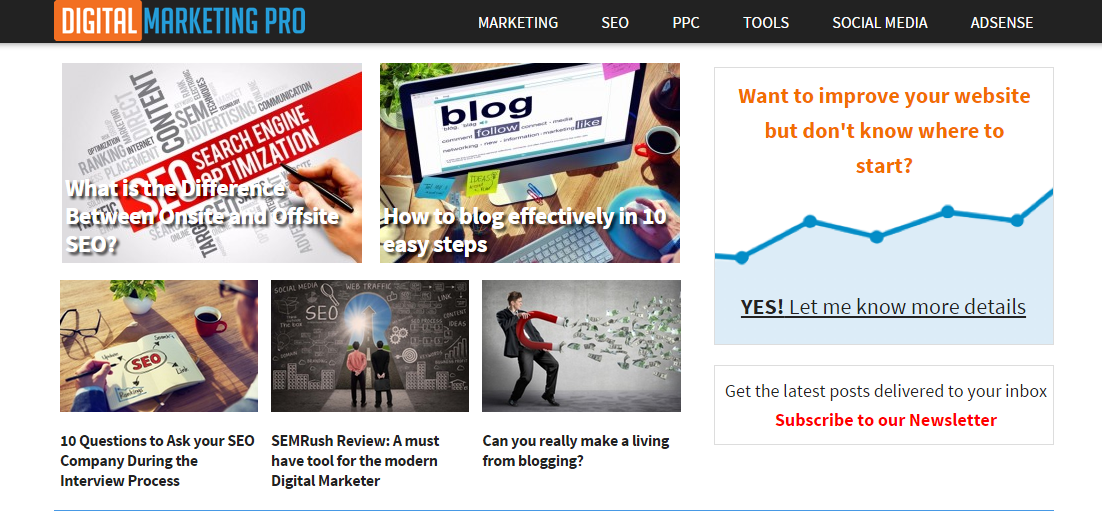
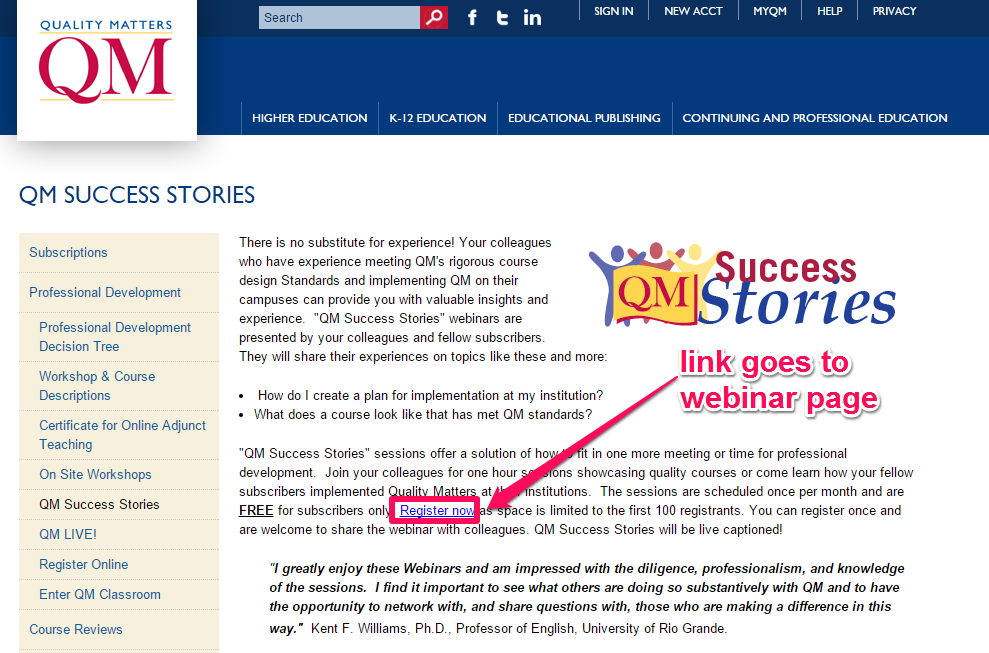



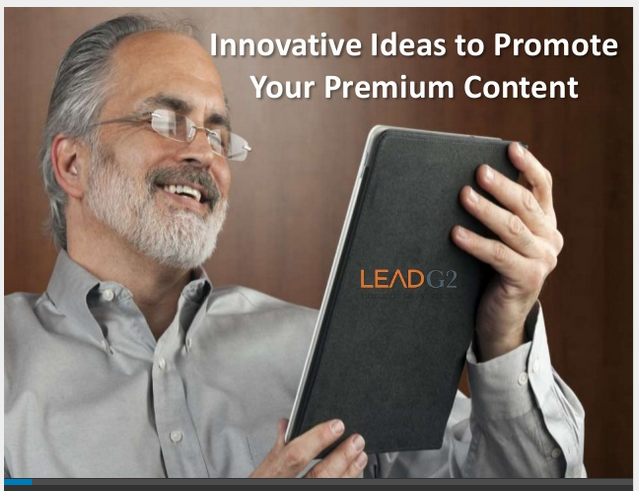
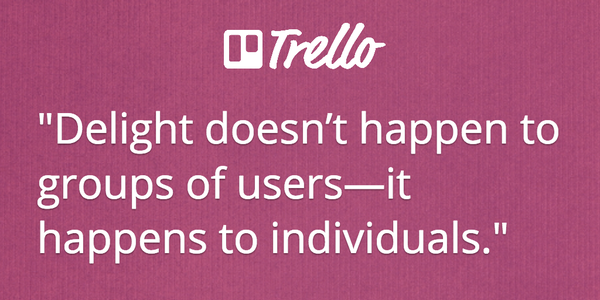



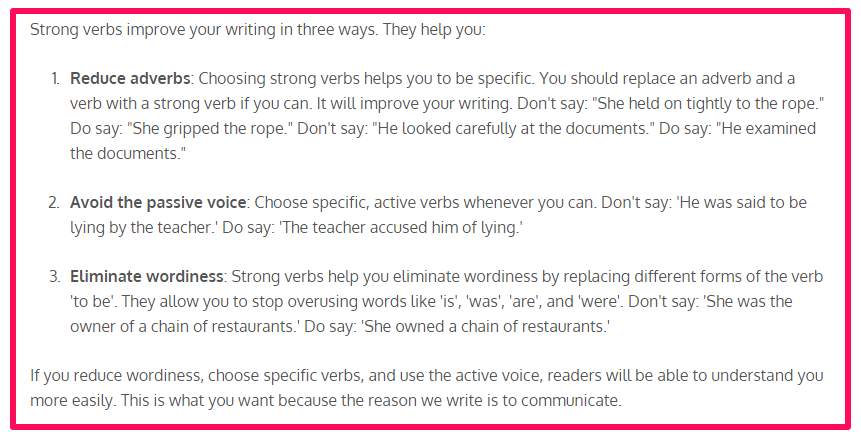


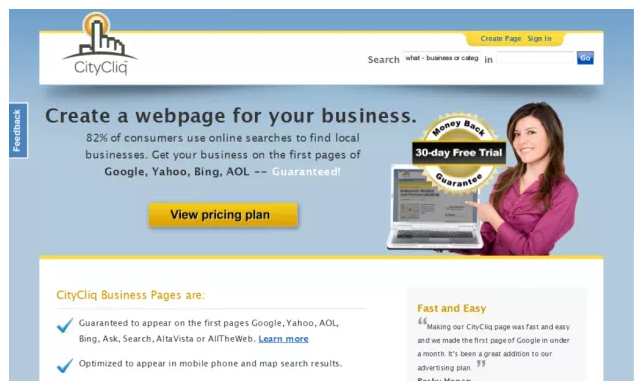


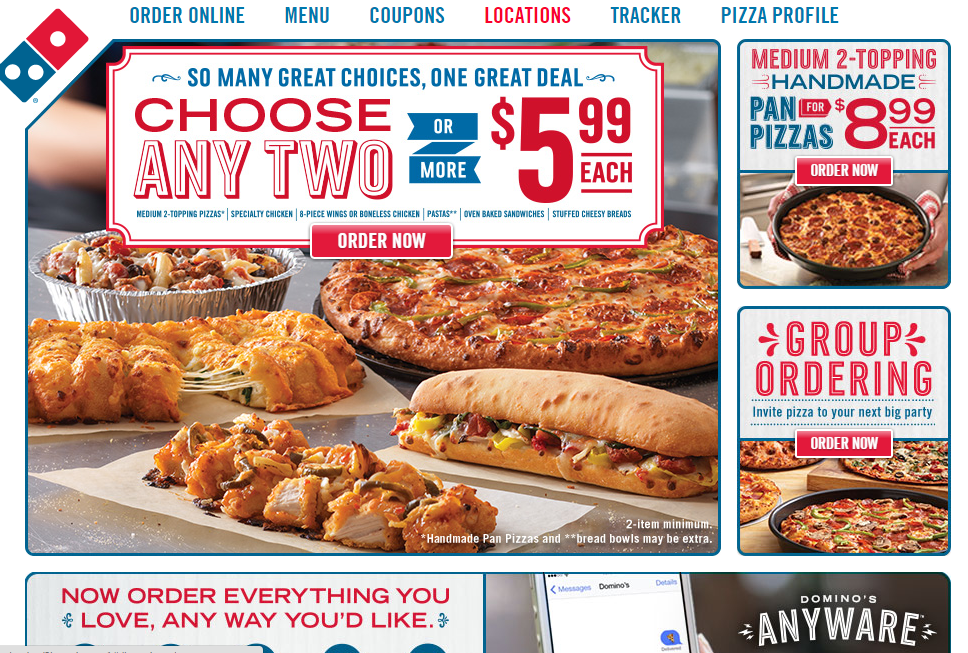
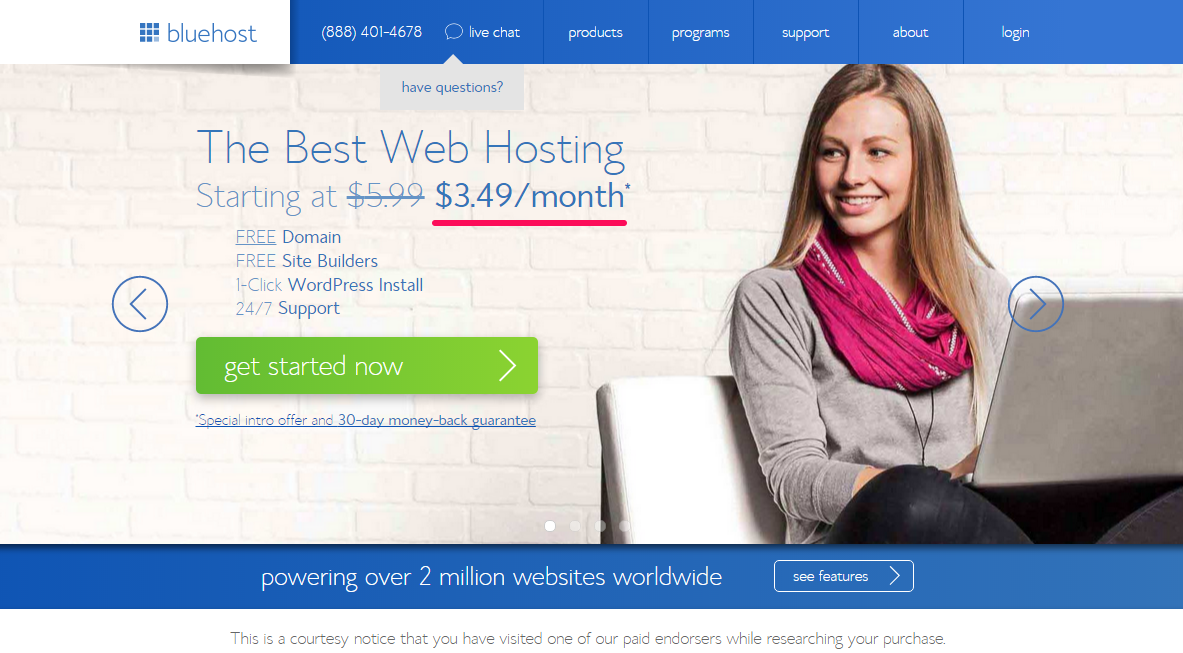
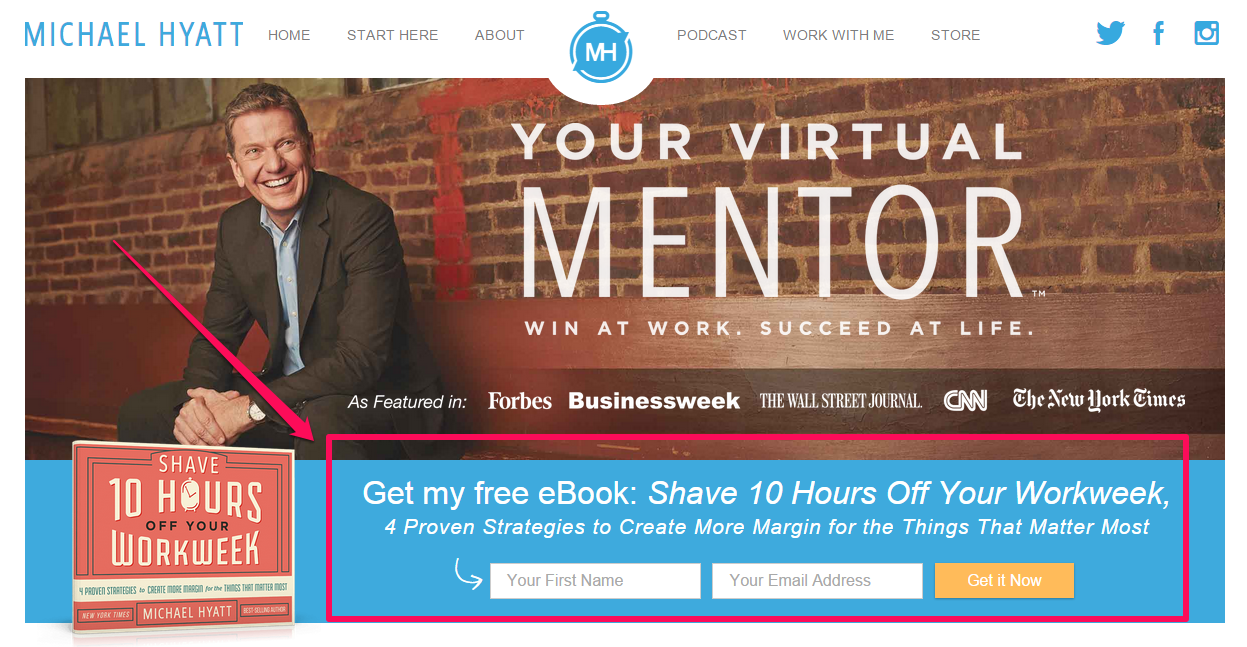

Comments (89)